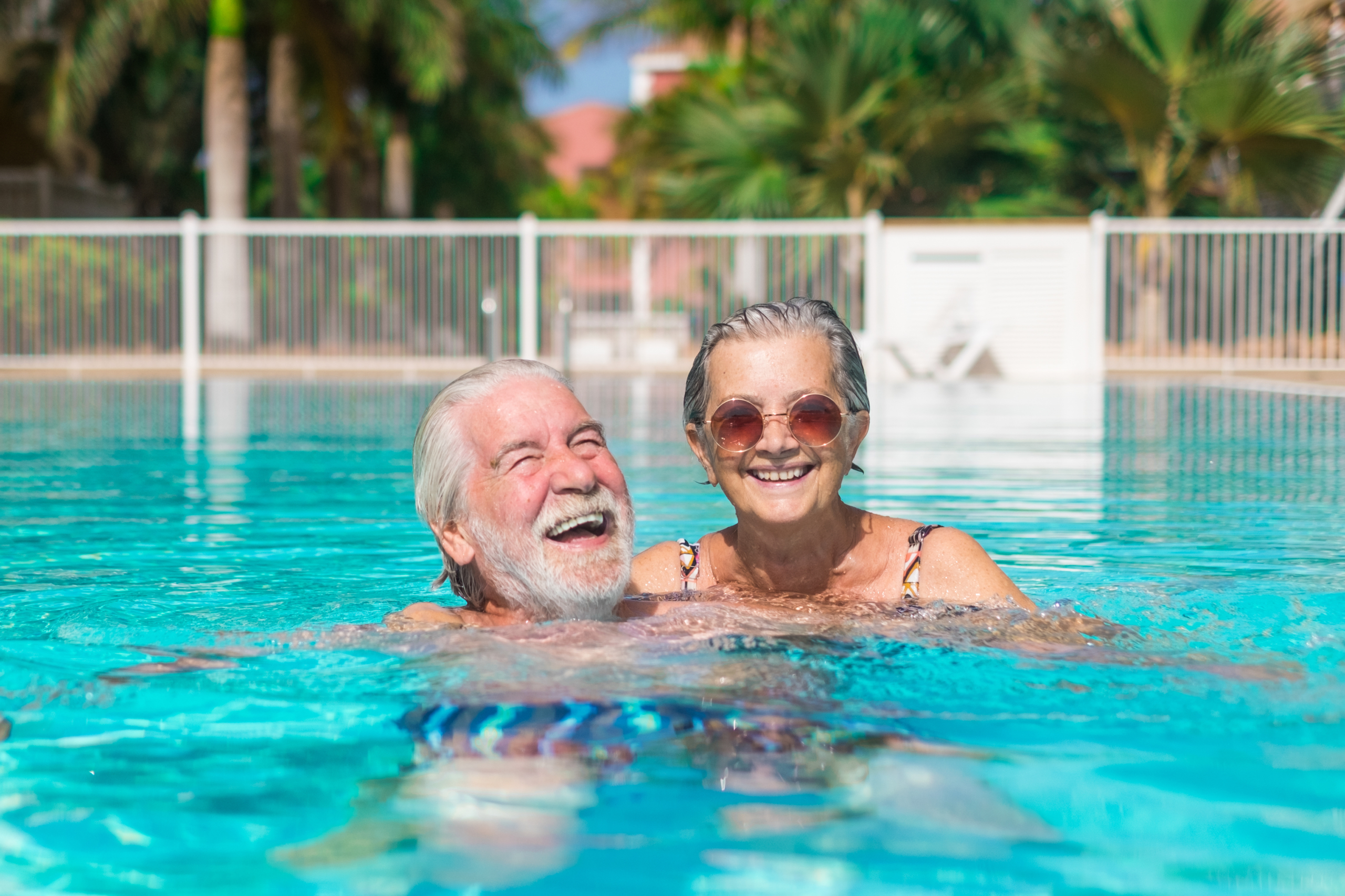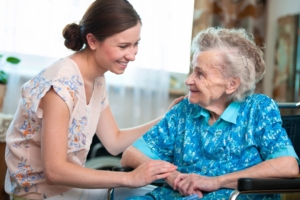In this blog post, we will share with you some essential summer safety tips that can help you and your loved ones enjoy the outdoors without compromising your health or happiness. The summer season is upon us, and it’s time to enjoy the great outdoors. However, seniors need to take extra precautions to stay safe during this time. Aging can make our loved ones more vulnerable to certain health conditions, and hot and humid temperatures can exacerbate (make worse) these underlying health issues. That’s why Your Nurse Advocate has compiled 6 essential safety tips for seniors to follow while enjoying this beautiful summer season.

As the temperatures soar and the sun shines brighter, summertime beckons us to go outdoors and bask in the warmth and beauty of nature. For seniors, outdoor activities can be a refreshing and enjoyable way to stay active and engaged. However, summer also comes with its own set of hazards that can put seniors at risk of injury, illness, or discomfort. As nurse advocates, we are dedicated to promoting the well-being and safety of seniors.
Whether you’re spending time in the garden, taking a stroll through the park, or planning a family vacation, our tips will help you stay protected and enjoy the summer season to the fullest.
1.Skin Protection – Our skin is the most exposed part of our body and therefore requires protection from the sun’s harmful UV rays. For seniors, it’s even more crucial to apply sunscreen with a high SPF rating of at least 15 before stepping outside. Remember to reapply every couple of hours, or after swimming or sweating, and wear protective clothing, such as hats and long-sleeved shirts of lightweight fabrics, to avoid sunburn. Seniors can also wear a visor or hat with a wide brim to protect their faces.
Seniors with fair skin or a history of skin cancer are at particular risk. Seniors are more prone to skin problems, such as sunburns, due to their aging skin that becomes thinner and less elastic.
Seek shade during peak hours of sunlight, usually from 10 a.m. to 4 p.m.
Don’t forget sunglasses! Keep those baby blues protected. Blue eyes are at greater risk because we do not have any “color” pigment to our eyes. As we age, we are more prone to cataracts.
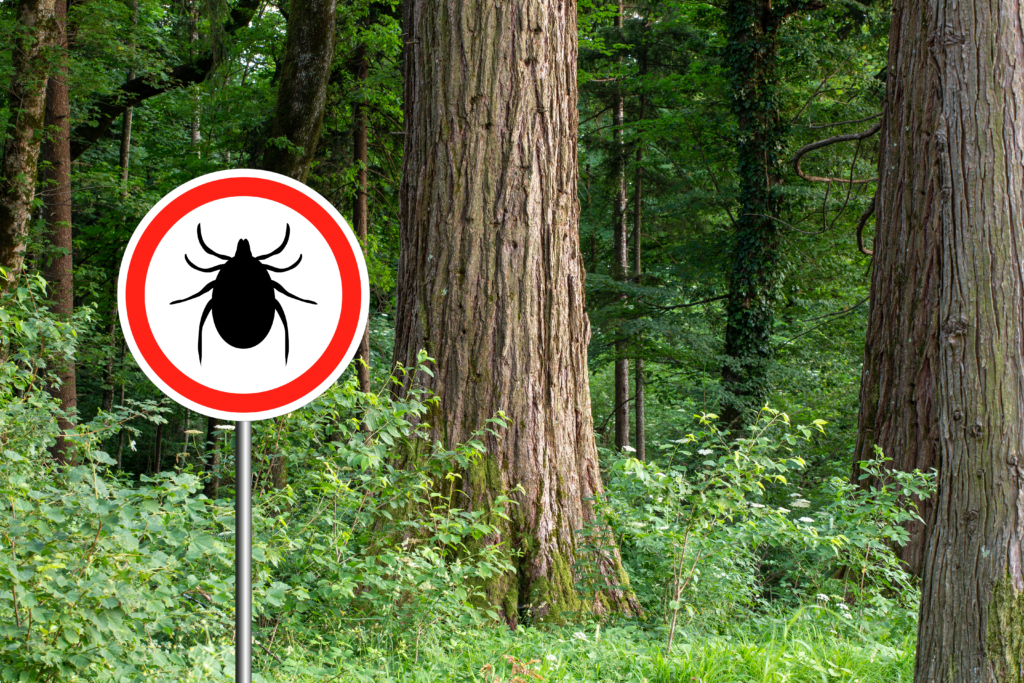
2. Tick and Lyme’s Disease – Seniors who love hiking or spending time in the woods during summer must keep an eye out for ticks and Lyme’s Disease. Lyme’s Disease is a bacterial illness that can cause flu-like symptoms, including fever, joint pain, and fatigue. The best way to avoid tick-borne infections is to wear long-sleeved shirts, pants, and socks. Also, use tick repellent spray and check your skin and your pet’s skin after going outside.
Here in Wisconsin the doctors are very good about testing for Lyme’s disease with any type of symptoms that can’t be readily explained. Sometimes the signs can be subtle, and you don’t get the “bull’s eye” rash. Fever, joint aches, pains and even chest pain can be a symptom depending on how advanced the disease might be. Some people need a second course of antibiotics to rid of the Lyme’s Disease. Please check with your doctor if you have been treated but are still experiencing some lingering symptoms. Make sure to ask to be tested for Lyme’s Disease if you think you may have had an exposure.
Ticks are common in wooded and grassy areas and can cause Lyme’s disease, a serious illness that affects the nervous system. To avoid tick bites, seniors should wear long-sleeved shirts, pants, and closed-toe shoes when walking in these areas. Also, check their skin and hair for ticks after coming inside and remove any ticks immediately. Make sure to remove the tick with something like tweezers and get as close to the skin as possible to get the “head” and the entire tick out.
3. Bugs and Mosquitoes – Seniors spend more time reclining outdoors than younger people, making them appetizing targets for mosquitoes and other bugs. Bug bites can cause pain, swelling, and itching, leading to skin complications. Wearing light-colored, long-sleeved shirts, and pants, coupled with avoiding areas of standing water, can keep these pests at bay.
Mosquitoes and other bugs can be a nuisance and can cause itchy bites, especially during outdoor activities. To prevent bug bites, seniors can use insect repellent sprays or lotions on their exposed skin.
Summer also means an abundance of flying and crawling insects that can annoy or bite you. Some can also transmit diseases, such as West Nile virus or Zika virus. To protect yourself from bugs and mosquitoes, use an insect repellent that is safe for seniors, such as those containing picaridin, oil of lemon eucalyptus, or IR3535. Wear long-sleeved shirts, pants, and socks, and avoid wearing perfume, after-shave, or scented body lotion, which can attract bugs. Use a mosquito net around your bed or sleeping area if you’re camping or staying in an area with a high mosquito population.
Avoid sitting in areas that are prone to housing mosquitoes and other biting insects, such as stagnant puddles or near trash receptacles.
Watch for other bugs such as spiders. I visited our family in South Carolina and was sitting outside and a spider bit me under my arm. I developed cellulitis (skin infection) and had to get treated with antibiotics. A shot in the keester was most unpleasant!
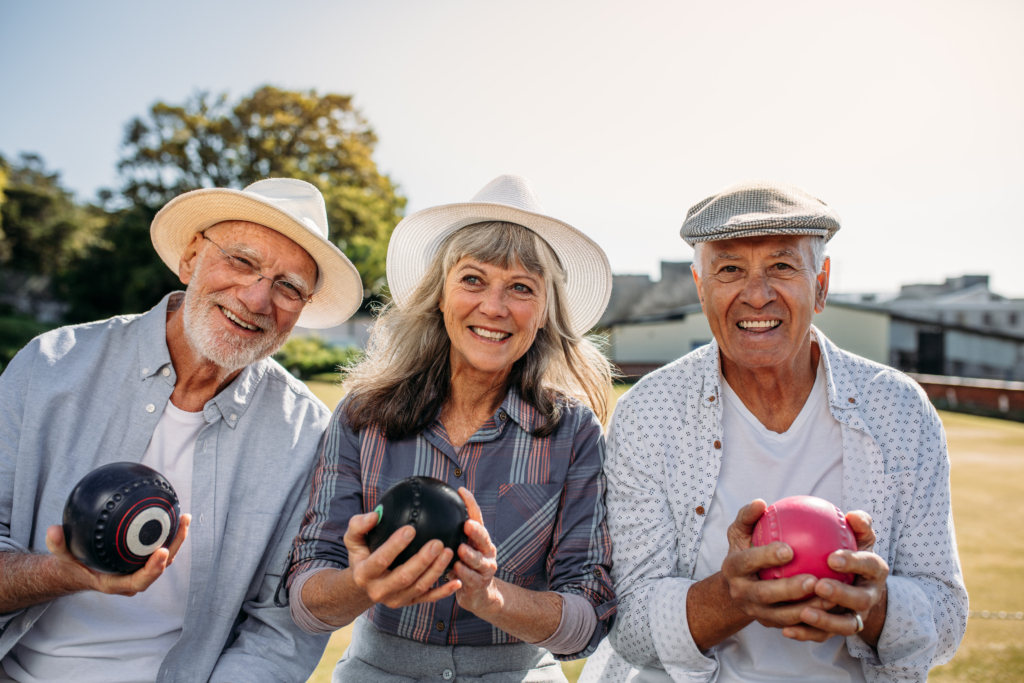
4. Appropriate Summer Attire – Choosing the right attire is essential to enjoy the outdoors safely during summer. Seniors should wear lightweight and light-colored clothes such as cotton, linen or bamboo that are cool and breathable and avoid tight-fitting or restrictive garments.
Wear a hat or cap to shield your face and eyes from the sun’s glare and consider wearing sunglasses that block 100% of UV rays.
Comfortable shoes with great support are vital for seniors looking to walk around the park or hike on trails.
Seniors also need to stay hydrated and bring water or refreshing electrolyte drinks with them.
5. Safe Outdoor Exercises – Seniors who love the outdoors can also incorporate safety in their exercise regimes. Seniors need to maintain their agility and coordination, which can decrease if they spend too much time sitting. Gentle exercises like walking, stretching, and swimming can provide seniors with the physical benefits they need. It’s essential to seek advice from your doctor before starting any new outdoor exercises.
For seniors, it’s essential to stay active to maintain their physical, mental, and emotional well-being. Outdoor activities can provide an excellent opportunity for exercise. To avoid heat-related illness, seniors should work out during the coolest times of the day and take frequent rest breaks. Swimming, walking, yoga, gardening, cycling and light stretching are excellent choices for low-impact, safe exercise for seniors.
Always warm up and cool down before and after exercising, and drink plenty of water to stay hydrated. Wear comfortable and supportive shoes that fit well and avoid uneven or slippery surfaces. Stop exercising if you feel dizzy, lightheaded, short of breath, or experience any pain, discomfort, or palpitations.
Exercising outdoors can provide a variety of benefits, from fresh air to vitamin D. However, it’s important to modify your exercise routine to stay safe in the heat. Try to exercise during the coolest parts of the day, such as early morning or sunset. Always keep water with you and take breaks if you begin to feel overheated.

By Love You Stock Adobe Stock Photos
6. Heat-Related Illnesses – Heatstroke, heat exhaustion, heat syncope (fainting), heat cramps, heat edema, heat rash, and dehydration are common for seniors during summer. Seniors should avoid prolonged exposure to the sun, drink plenty of fluids regularly, and be mindful of the signs and symptoms of heat-related illnesses.
“Heat stroke is a medical emergency in which the body’s temperature rises above 104°F. Signs of heat stroke are fainting; confusion or acting strangely; not sweating even when it’s hot; dry, flushed skin; strong, rapid pulse; or a slow, weak pulse. When a person has any of these symptoms, they should seek medical help right away and immediately move to a cooler place, such as under shade or indoors. They should also take action to lower their body temperature with cool clothes, a cool bath or shower, and fans.” Information provided by the National Institute on Health for Seniors.
According to the National Institute on Health, “Older people can have a tougher time dealing with heat and humidity. The temperature inside or outside does not have to be high to put them at risk for a heat-related illness. Taking drugs such as diuretics, sedatives, tranquilizers, and some heart and high blood pressure medicines that may make it harder for the body to cool itself.”
Headache, confusion, dizziness, or nausea could be a sign of a heat-related illness. Go to the doctor or to an emergency room to find out if you need treatment. Remember to ask your doctor if any of your medications could make heat and sun exposure riskier for you and heat or sun related illnesses.
To keep heat-related illnesses from becoming a dangerous heat stroke, remember to:
- Get out of the sun and into a cool, ideally air-conditioned place.
- Drink fluids but avoid alcohol and caffeine.
- Shower, bathe, or sponge off with cool water.
- Lie down and rest.
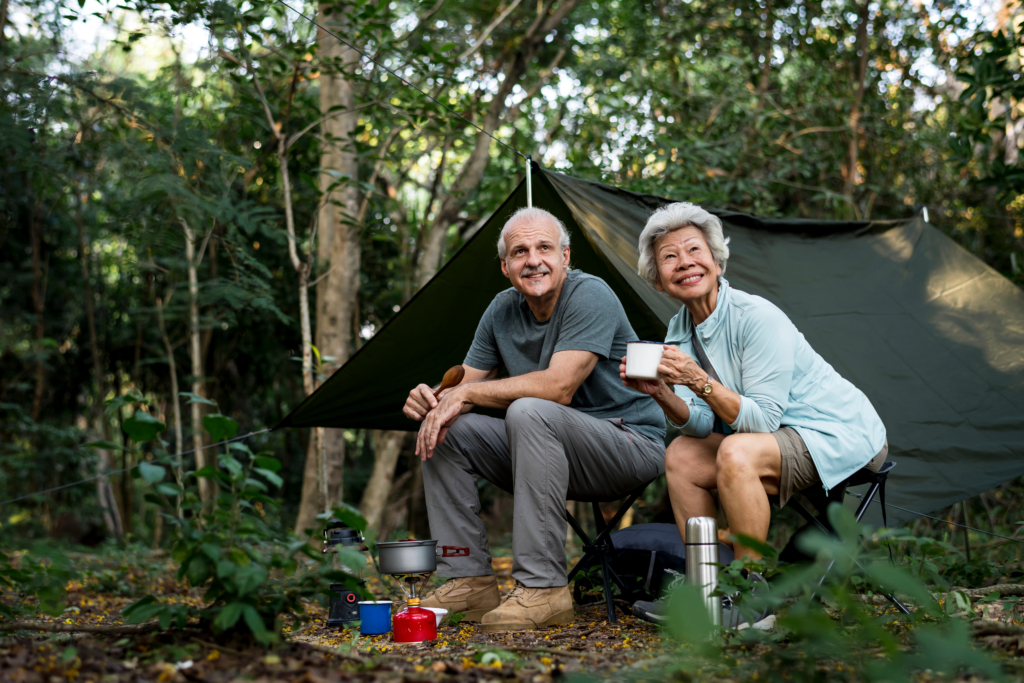
Conclusion:
As we have discussed in this blog post, there are several ways to ensure that your older loved ones are safe while enjoying outdoor activities during the summer. By following these simple safety tips for skin protection, tick and Lyme’s disease, bugs, and mosquitoes, wearing appropriate clothing, and practicing safe exercise, seniors can stay active and enjoy the summer outdoors. Remember to be aware of your elderly loved one’s limitations and suggest activities that you can do together as a family, and most of all—have fun. If you have any more concerns, consult your provider for guidance to ensure that you are doing everything possible to keep your or your loved ones safe.
Happy Summer Enjoyment!
Thanks for stopping by and spending a few minutes with us. We hope you have gained some insights to having a great summer outdoors! If you enjoy our tips, consider becoming a part of our free forum on “Speaking Out on the Care of Our Aging Parents. Great discussions and good information shared.
Take care and we will see you back here soon,
Pam and Linda
Your Nurse Advocates
Resources:
Free Resources: Your Nurse Advocate Consulting
https://www.nia.nih.gov/health/exercising-outdoors
https://www.nia.nih.gov/health/hot-weather-safety-older-adults

